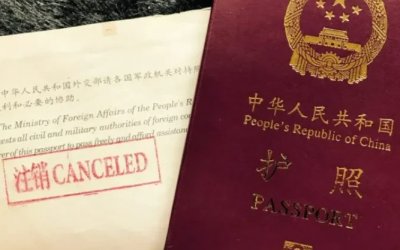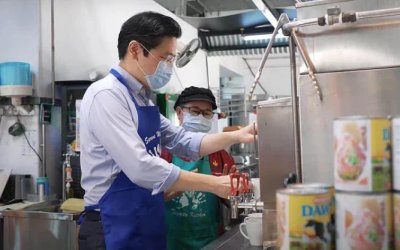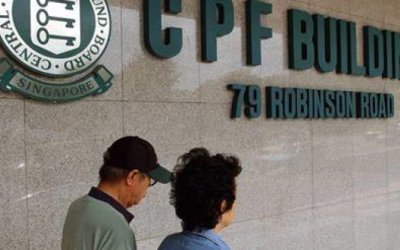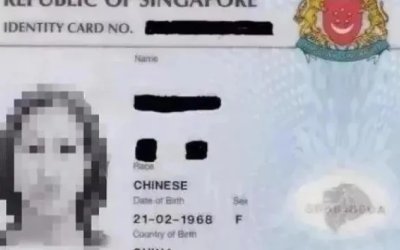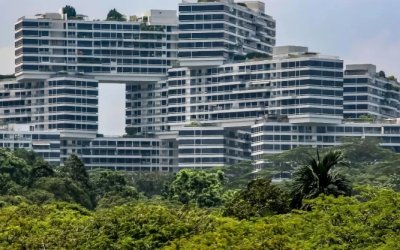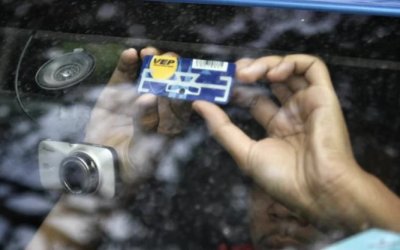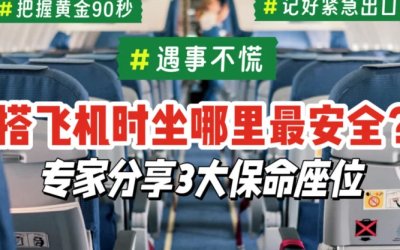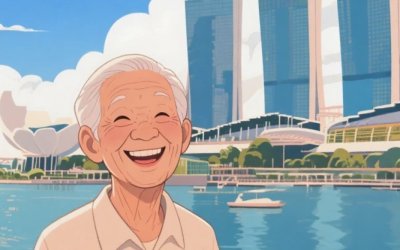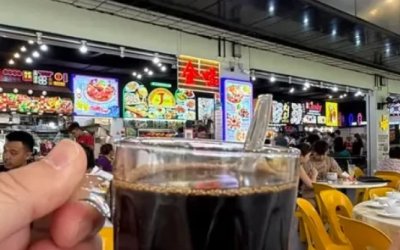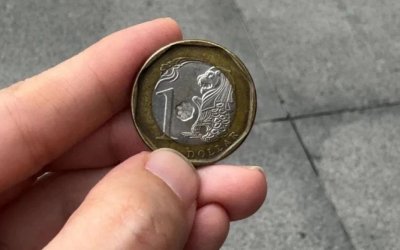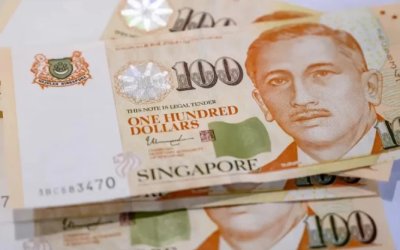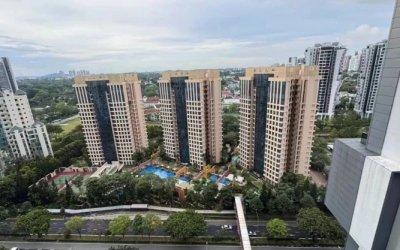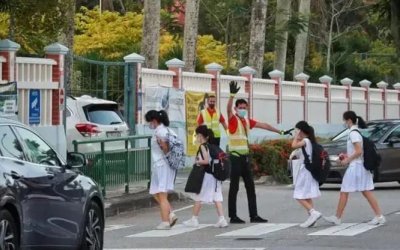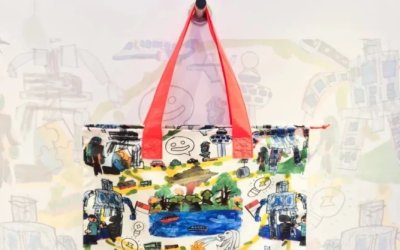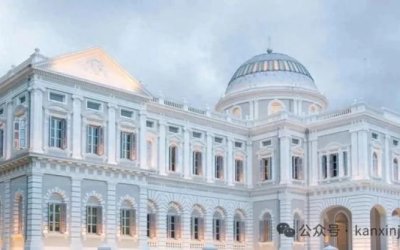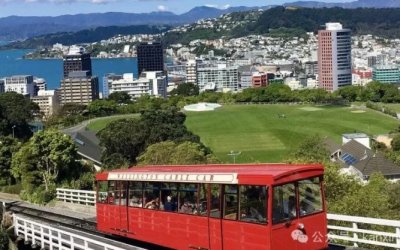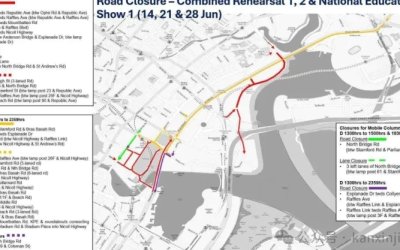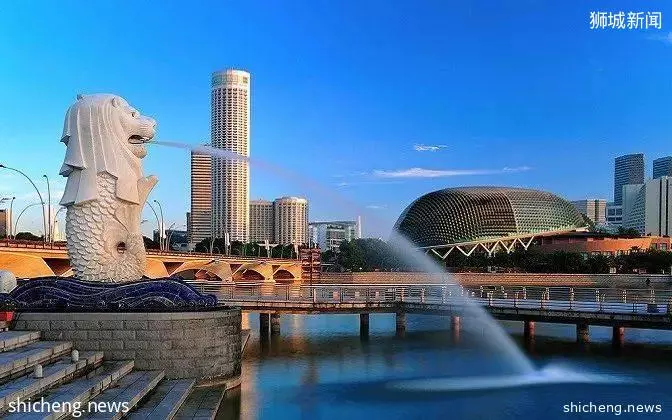
新加坡環境優美、城市乾淨,被譽為「花園城市」。一塵不染的背後,離不開大大小小的「清潔運動」,其中50年前啟動的「保持新加坡清潔運動」影響最大。這場運動最具特色的地方,就是通過罰款來管控社會,促進城市的乾淨清潔。
新加坡:一塵不染的代價

作者:Tim McDonald
譯者:王津雨 & 邵海靈
校對:趙萌萌
策劃:鄒世昌
What did it take for this sovereign-city state to become Asia’s cleanest, greenest metropolis?
作為亞洲最乾淨、最環保的大都市,這個城邦國家經歷了什麼?
本文選自 BBC | 取經號原創翻譯
關注取經號,回復關鍵詞「外刊」
獲取《經濟學人》等原版外刊獲得方法
About 200 volunteers scoured the housing estate looking for rubbish in Khatib, a neighbourhood in northern Singapore. There were families with young children and volunteers from a local hospital. And a few, mostly senior, volunteers in matching shirts from the 「North West Brisk Walking Club」 were there too.
新加坡北部的卡迪社區里,約200名志願者為翻找垃圾而搜遍了整個住宅區,其中有帶小孩的家庭,有當地醫院的義工,還有一些「西北快走俱樂部」的志願者,他們身著同款襯衫,裡面很多是老年人。
scour/skaʊr/ v. To search very carefully and thoroughly through an area, a document etc (徹底地)搜尋,翻找,搜查
Some edged into the bushes to pick up a couple of cigarette butts. Others found the odd tissue abandoned on a tabletop. To be honest, this clean-up day seemed like something of a misnomer. It was clean already. None of the volunteers returned with bulging sacks of refuse.
有人鑽進灌木叢,就為撿幾根菸蒂;有人發現人們在桌子上亂丟紙巾。老實說,把這天稱作「清掃日」似乎有點誇張,因為社區已經很乾凈了,沒有一個志願者是帶著鼓鼓囊囊的垃圾袋回來的。
misnomer /,mɪs'nomɚ/ n. A wrong or unsuitable name錯誤的名字;不恰當的名稱
But that’s to be expected in Singapore. The country has long had an obsession with hygiene and cleanliness. And this month marks a big milestone: Founding father and first Prime Minister Lee Kuan Yew kicked off the Keep Singapore Clean campaign 50 years ago this month.
但這在新加坡卻是常態。這個國家一直很注重衛生清潔。而本月是一個里程碑式的時間點:50年前的這個月,被稱為「新加坡國父」的首任總理李光耀啟動了「保持新加坡清潔運動」。
Cleanliness campaigns were already well-established by that time, but this one was different. It was the first time the government used fines as a method of social control. But Singapore’s economic advance seemed to short-circuit its initial success. By any measure, Singapore is clean. But not for the reasons you might think.
當時大大小小的清潔運動都很成熟了,但這個運動不同,這是新加坡政府首次使用罰款進行社會管控。該運動獲得了迅速的成功,但新加坡的經濟發展似乎讓這一成功偏離了運動的初衷。不管以什麼標準來衡量,新加坡都可以說是很乾凈的,但個中緣由未必是你以為的那樣。
short-circuit /ʃɔrt ˈsɚkɪt/ v. If someone or something short-circuits a process or system, they avoid long or difficult parts of it and use a quicker, more direct method to achieve their aim. 繞過
Clean and Green
清潔與環保
If you』ve ever walked in the same direction as a rubbish truck as it idles up the street on its daily collection here in Singapore, you immediately understand why the city is cleaned so relentlessly. The dumpster perfume really slaps you in the face.
如果你跟一輛緩緩駛過的垃圾車走在同一個方向,就會明白為什麼這座城市總是沒完沒了地在打掃————垃圾桶里那撲面而來的味道,簡直就像狠狠打了你一耳光。
In cities with a cooler climate, it’s probably okay to go a little longer between household collections. But in the hot, humid tropics, it’s an urgent task. Lingeringhousehold and commercial waste can be downright dangerous.
在氣候較為涼爽的城市,人們收生活垃圾還能稍微遲些。但在炎熱潮濕的熱帶地區,收垃圾就刻不容緩了。生活垃圾和商業垃圾一旦擱太久,就會特別危險。
lingering /'lɪŋgərɪŋ/ adj. continuing to exist for longer than usual or desirable拖延的,久纏不去的
「If you have littering like you see in other countries, it can breed rodents, flies, cockroaches. They are all carriers of bacteria and germs,」 said Edward D』Silva, chairman of the Public Hygiene Council. Mosquitoes are an even bigger worry. You won』t get malaria here, but in a bad year, there』ll be tens of thousands of cases of dengue.
新加坡公共衛生理事會主席愛德華·德西爾瓦指出:「如果你像其他國家的人那樣亂丟垃圾,就會招來老鼠、蒼蠅和蟑螂,它們都攜帶著病菌。」蚊子更麻煩。新加坡沒有瘧疾,但要是哪一年運氣不好,就會有成千上萬人患上登革熱。
Clean and Green
清潔與綠色
When he introduced the Clean and Green policy, Lee Kuan Yew had loftier goals in mind. It was part of a larger push that included changes to public health laws, the relocation of street vendors into hawker centres, the development of proper sewage systems and disease control measures. At the same time, the population moved from Kampongs (Malay-style villages with wooden huts) into housing estates with better infrastructure.
李光耀在推行清潔與綠色政策時,心中懷有更加宏大的目標。這項政策只是他全面改革的一部分,其他措施包括修改公共衛生法、將路邊攤遷至小販中心、完善污水處理系統與疾病管控措施等。同時,住在小村子(譯者註:Kampongs是指建有木屋的馬來西亞式村莊)的人搬到了基礎設施更好的住宅區。
hawker centres: 新加坡和馬來西亞的小販中心(又稱熟食中心),是由政府興建的室外開放式飲食集中地,售賣食品物美價廉、種類繁多,以東南亞熟食以及飲品為主。
「We have built, we have progressed. But no other hallmark of success will be more distinctive than that of achieving our position as the cleanest and greenest city in South Asia,」 he said in 1968.
「我們已進行了社會建設,也已取得了進步。但如果新加坡能成為南亞最乾淨環保的城市,這將成為我們最具特色的成功標誌。」李光耀在1968年說道。
In addition to adverts, there were public education activities, lectures by health officials and spot checks by the government. There were also competitions which highlighted both the cleanest and the dirtiest offices, shops, factories, government buildings, schools and public vehicles.
除了宣傳廣告,政府開展了抽查行動,衛生機構也舉辦了公共教育活動、組織了講座。此外還有比賽,重點評選出最乾淨和最髒亂的辦公室、商店、工廠、政府大樓、學校和公交車。
The campaign was followed by a plethora of others. Throughout the 1970s and 1980s, there were campaigns that urged Singaporeans to keep toilets, factories and bus stops clean. The 1976 Use Your Hands campaign had students, parents, teachers, principals and civil servants cleaning up schools at the weekend. There were also numerous tree planting initiatives.
這一運動開始後,其他運動也像雨後春筍般出現了。在整個七十到八十年代,湧現了不少類似的運動,敦促新加坡人保持廁所、工廠和公交站的清潔。在1976年的「投入雙手」運動中,學生、家長、老師、校長和公務員要在周末打掃學校。此外,人們還種了很多樹。


